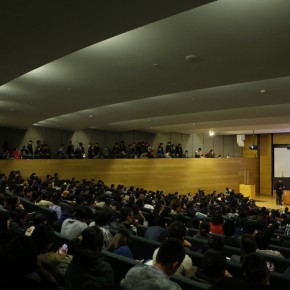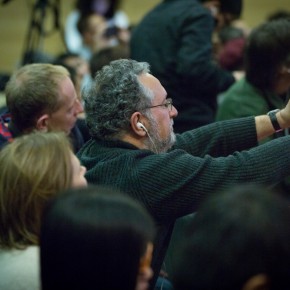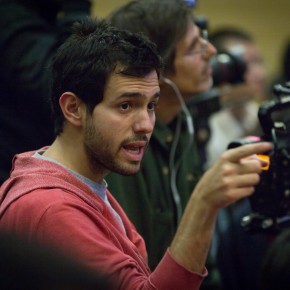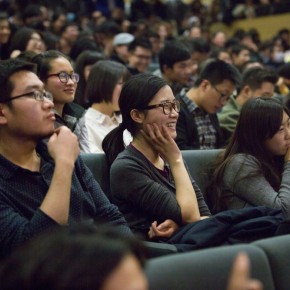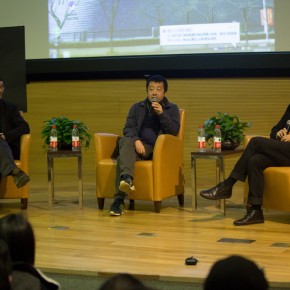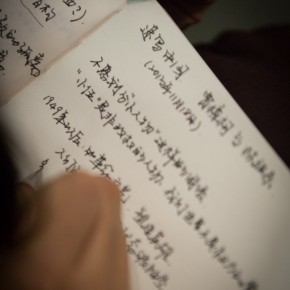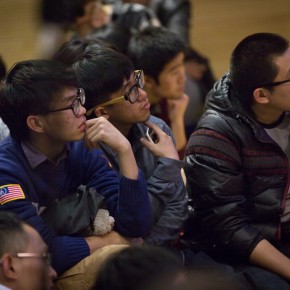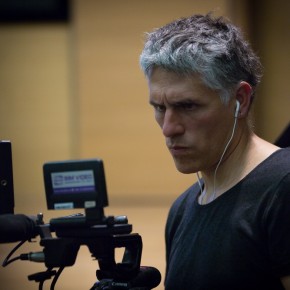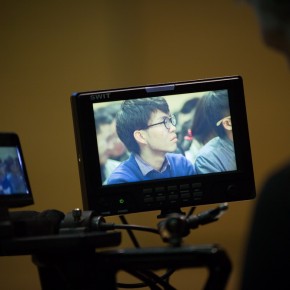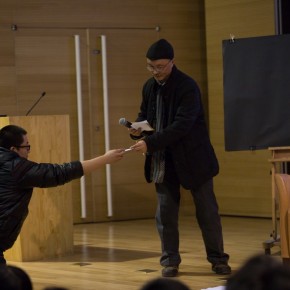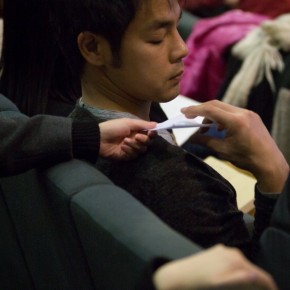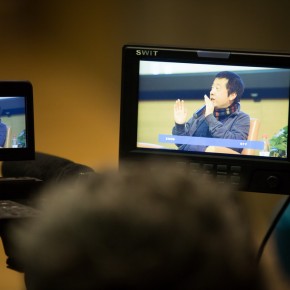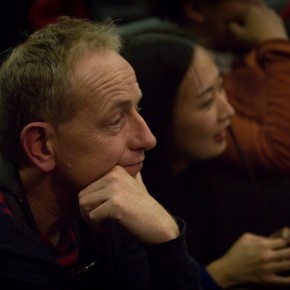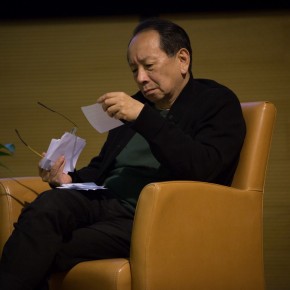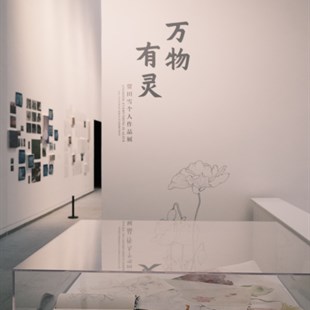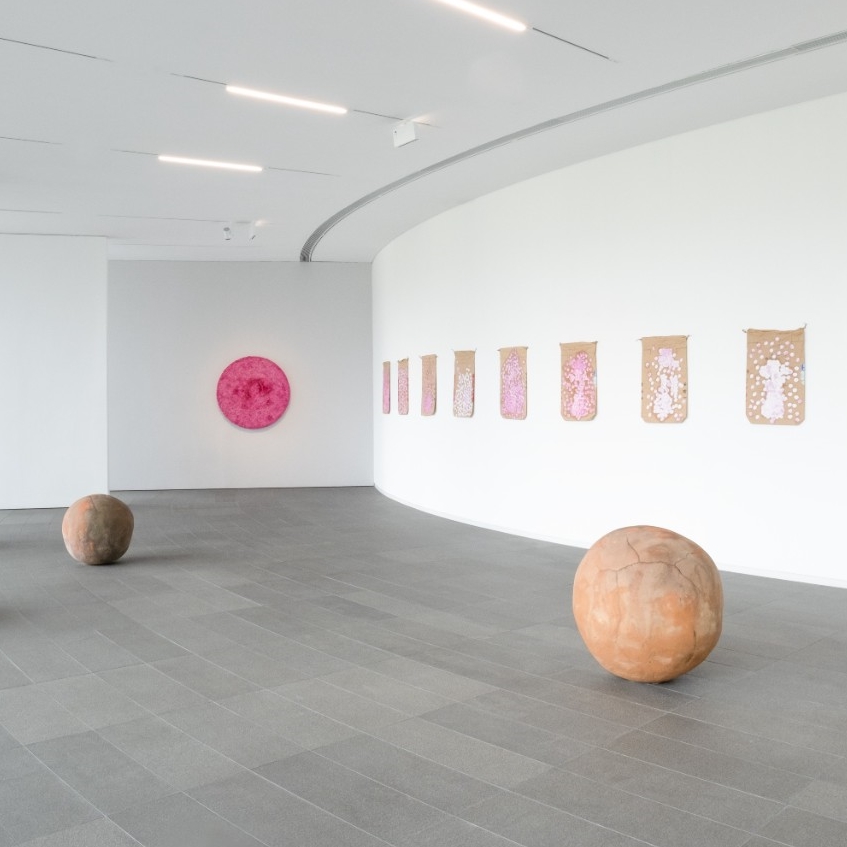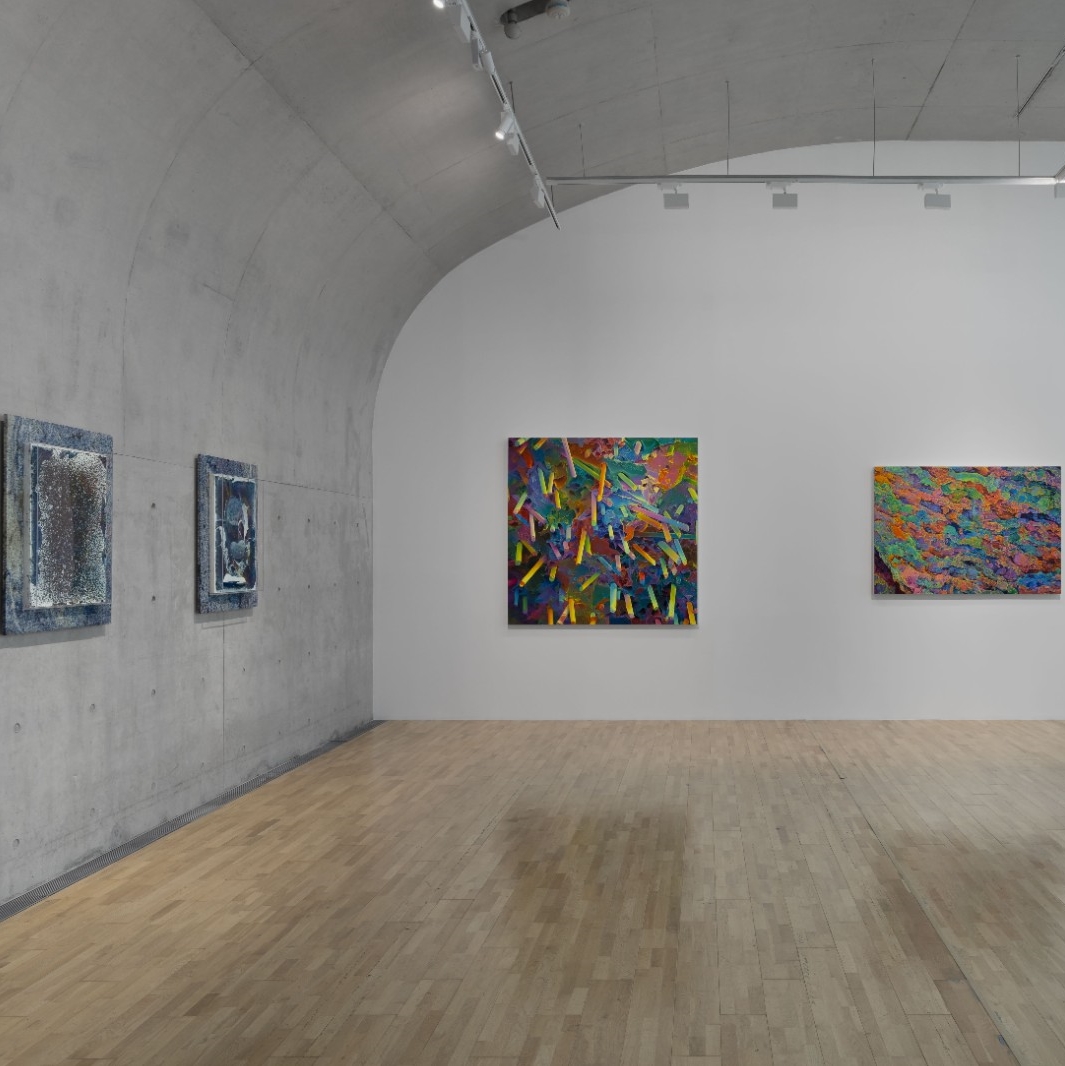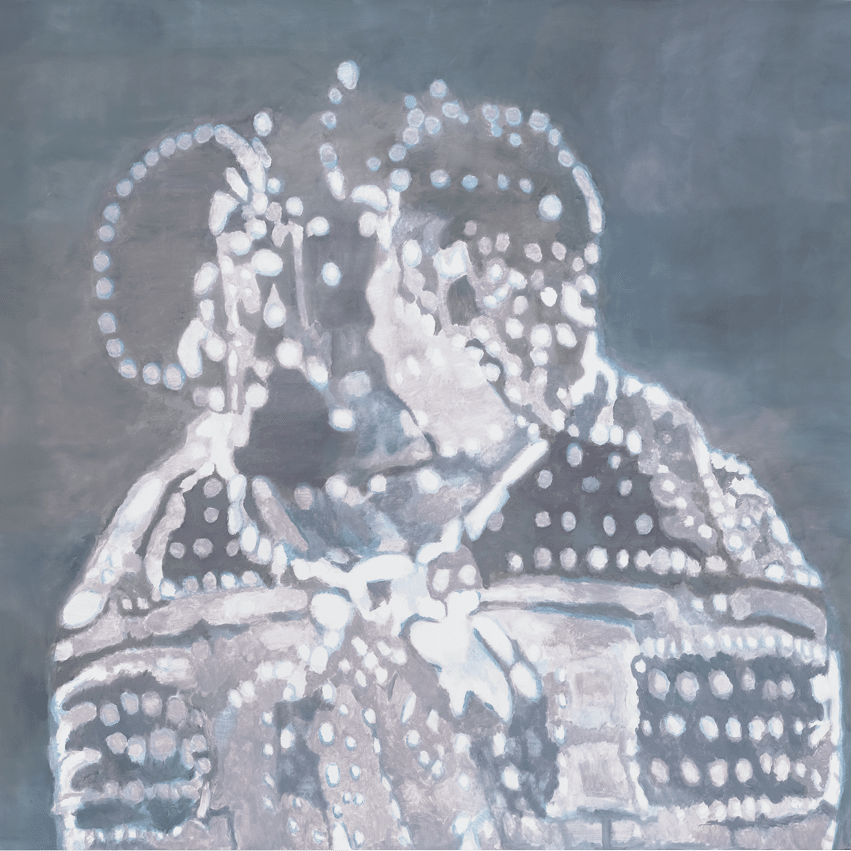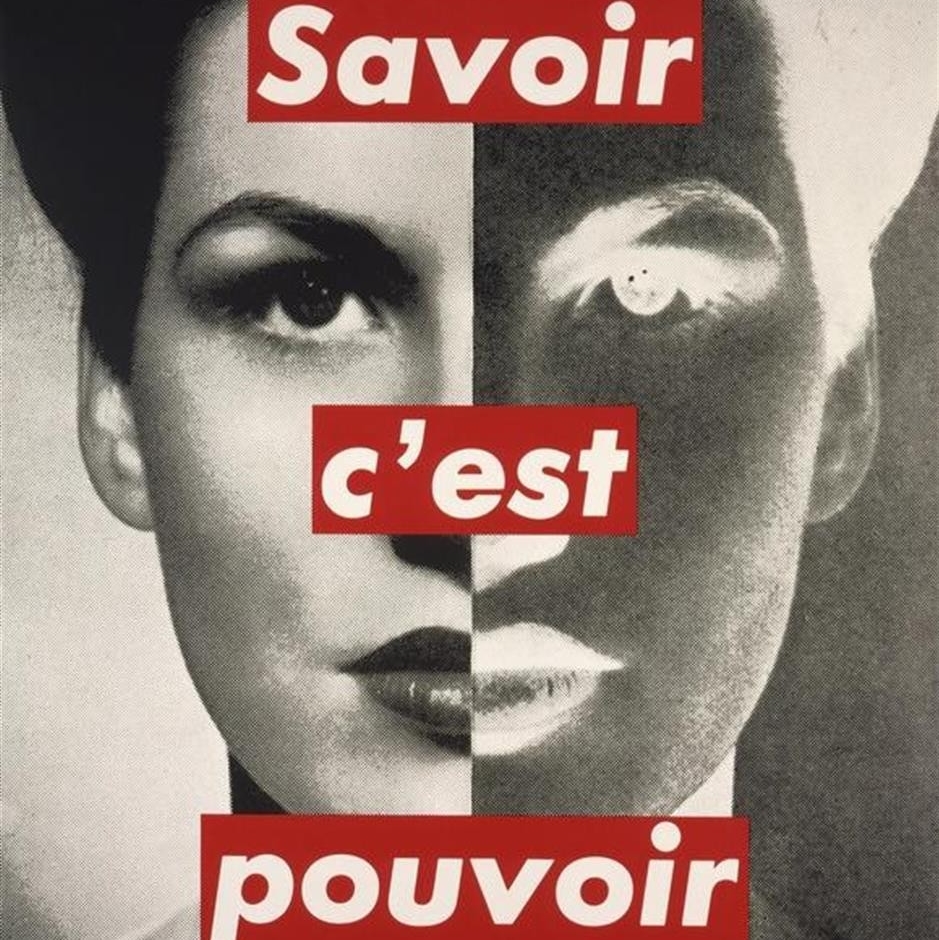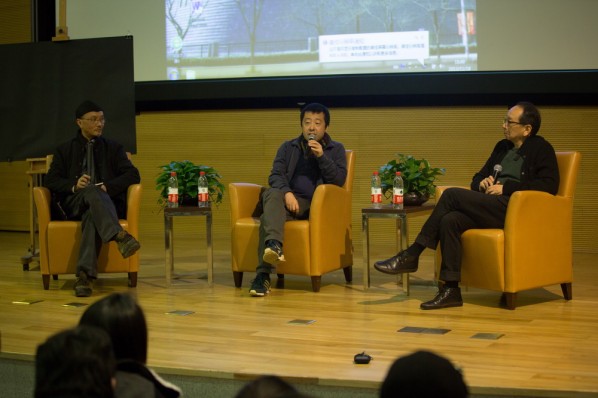
Jointly organized by the School of Experimental Art of CAFA (which is about to be established) and CAFA Art Museum, “Sketch Out China – from Xiao Wu to A Touch of Sin Jia Zhangke Dialogue with Lin Xudong” was held at the Auditorium of CAFA Art Museum at 18:30 on November 18, 2013, the experimental art lecture attracted a huge number of listeners, the hall was bursting with people.
Moderator Prof. Lv Shengzhong humorously introduced the theme of the dialogue and the two professors, Prof. Lv said sketches are a method to record life, but in the current big art times, in addition to traditional sketches, sketches also contained photography and video. Jia Zhangke was a renowned director, screenwriter at home and abroad, a thinker and artist, as well as a professor of the Department of Experimental Art, CAFA. Jia Zhangke was in pursuit of the penetration of the appearance of reality with the use of video, paying attention to the grassroots of China with human care, his films revealed a heavy cultural responsibility, which was the lifeblood of the nation. Lin Xudong was a famous documentary film scholar, film critic, artist, who also graduated from the Department of Printmaking, CAFA in 1985 with a master’s degree, once teaching a creative documentary course at the Communication University of China, serving as a judge of many international film festivals.
Prof. Lin Xudong initially talked about his acquaintance with Jia Zhangke (they cooperated in shooting the film “Xiao Wu” in 1998, while Lin Xudong served as a consultant and offered guidance on the clips in the film), he initially pointed out a feature in Jia’s films, that he made use of a large number of popular songs although he liked rock and roll himself. Jia explained he really enjoyed rock and roll in the early 1990s, when only a small crowd of people living in his world loved rock and roll, so he thought it was a lonely voice, which belonged to his spiritual world. He would like to shoot the crowd that he was familiar with in his life, which was short of rock and roll. Jia Zhangke said, the artist’s subjectivity shouldn’t be added into the film, instead, redrawing the reality of life, and understanding the experiences at the moment in this process.
Lin Xudong said Jia Zhangke’s films had always shown performances of the "everyday stories of nobody. Jia Zhangke disagreed on the title of “nobody”, because his films were concerned with the majority of people in the society, to be exact, the films’ protagonists were all missing power, and lost the capability to control their lives, passively living under the shadow of power, while finding their way to make their voices heard. Jia Zhangke believed that “everyday” was very important, because we are living real lives, it was not necessary for a film to portray a dramatic, legend, high tension and antagonism world. Since the founding of the PRC, Chinese film has become a revolutionary art, emphasizing popularity, a division of a variety of types, while everyday life is executed on the screen, thereby Jia Zhangke particularly yearns for the reality in film.
Film was the natural presentation of everyday life, which Jia Zhangke believes is both an emotional and aesthetical choice. The short experience of studying art gave him the consciousness of material, so he naturally thought of the beauty of a film when he studies it, but it would be endless to think about the ontology of art. Film had begun a dramatic tradition, while it unprecedentedly showcased a natural state and the art of recovery of materials. Film offered the process of rediscovery of life, reconstructing a kind of poetic beauty in the natural state, which was the aesthetics of a documentary, rather than the original presentation, it reflected the beauty of life, basically building on the very imagination for understanding reality, which was both a capability in capturing life and a creativity.
Lin Xudong pointed out the close relationship between Jia Zhangke’s films and reality, which was accessible in synchronising with Chinese reality in the films. Jia believed that we were currently living in a rapidly changing society, which should be rapidly reflected, art, music, literature directly perform the reality, but film was an industrial mode of practical obstacles, which on average took one or two years in production, it was worthy of thought-provoking as to how to reflect the era. Thus, shooting was a behavior. He published “Xiao Wu”, “Platform”, “Unknown Pleasures”, “World”, “Still Life”, “24 City”, “A Touch of Sin”, etc, every two years, which had intrinsic connections, a reflection of the Chinese society both in reality and Jia Zhangke’s personal feeling.
Then, Prof. Lu Shengzhong expressed his views about the dialogue, he believed that Jia Zhangke’s films recorded the reality in China, rather than making a conclusion of the phenomenon, it gave a proposition for people to repeatedly contemplate. Jia Zhangke’s film practiced an ideology, rather than a simple expression of nostalgic feeling of a hometown, he consciously chose it, connecting his position, vision with the public, dealing with the relationships between contemporary art and public. Thus, his films really belonged to the category of contemporary art. In the Q & A section, the audience asked Jia Zhangke a lot of questions, most of which were not answered because of the lack of time. Lv Shengzhong laughed, Jia Zhangke had once said his teaching in CAFA was an advanced study for him, so he would like to bring those questions back to the advanced studies. The dialogue was concluded in laughter.
Journalist: Ye Yuanfeng, Photo: Hu Zhiheng/CAFA ART INFO
Translated by Chen Peihua and edited by Sue/CAFA ART INFO



